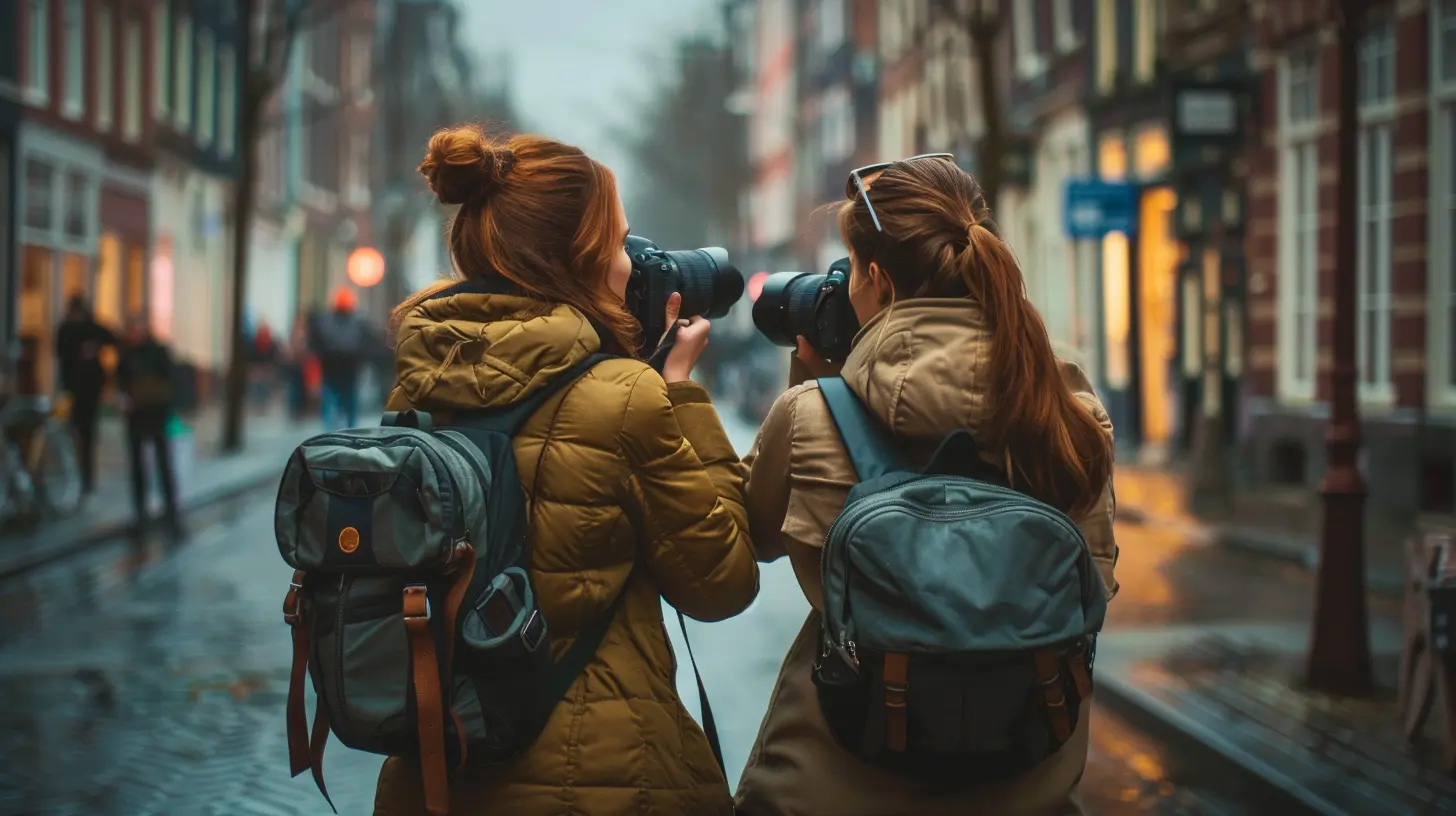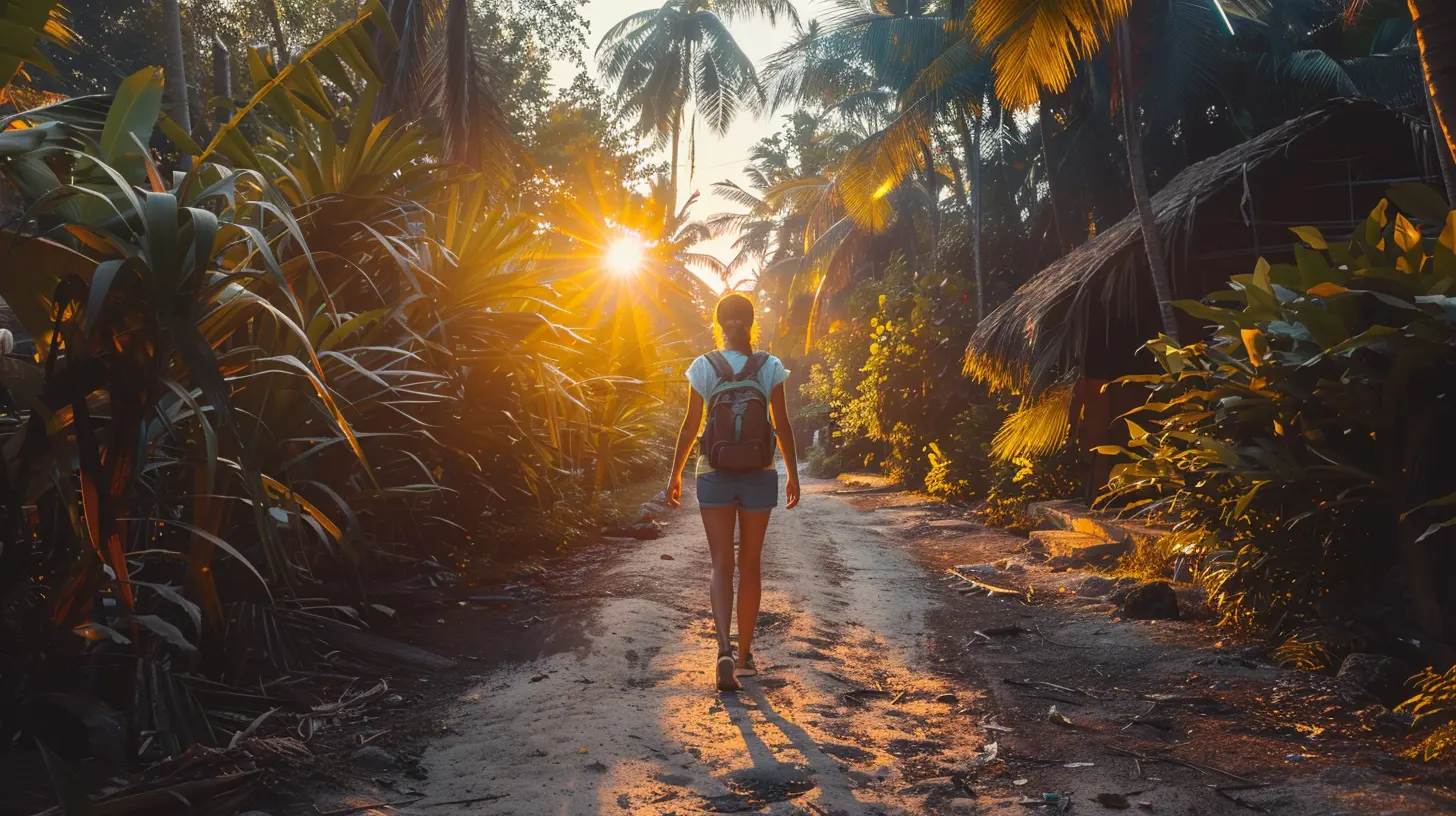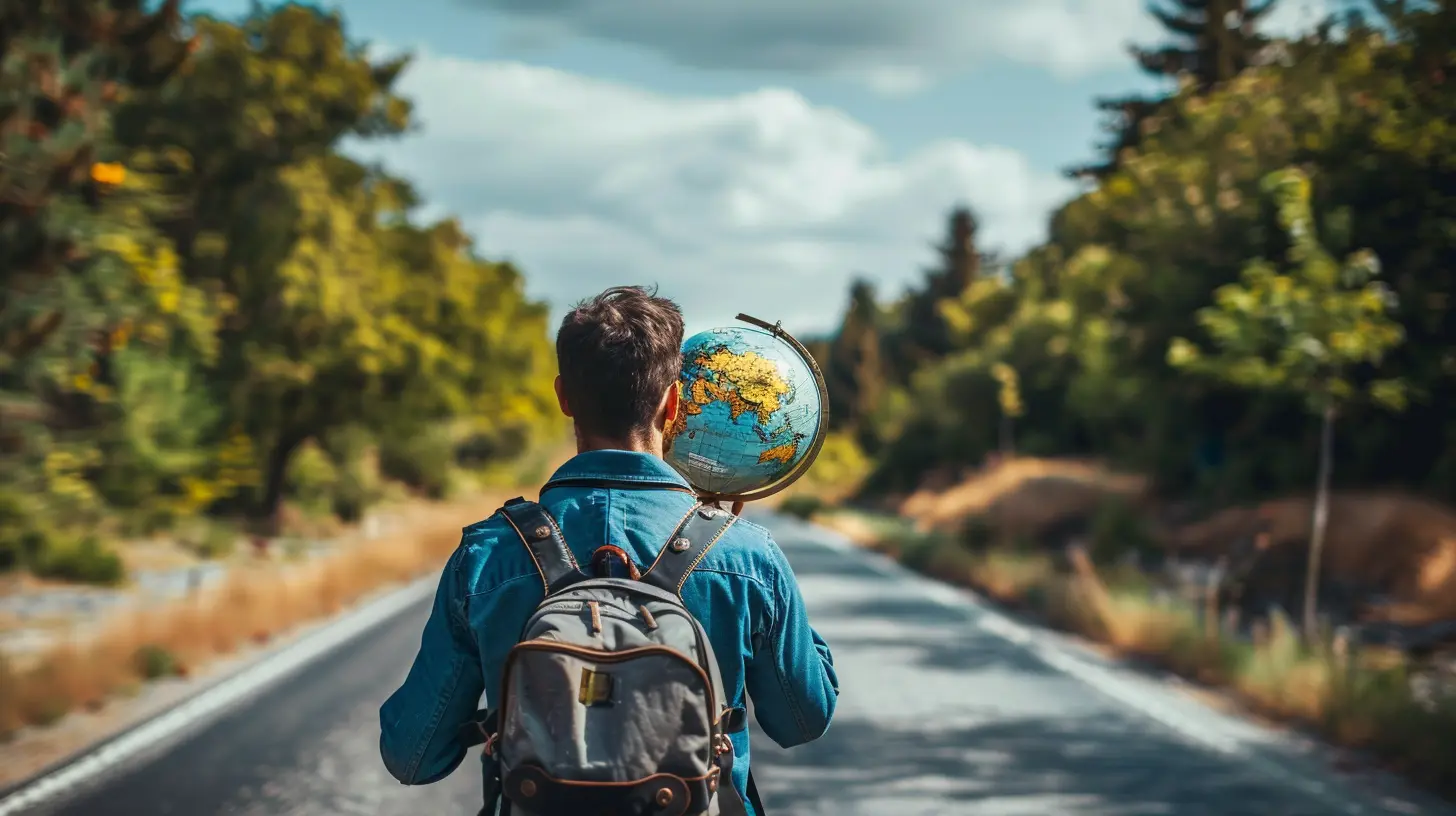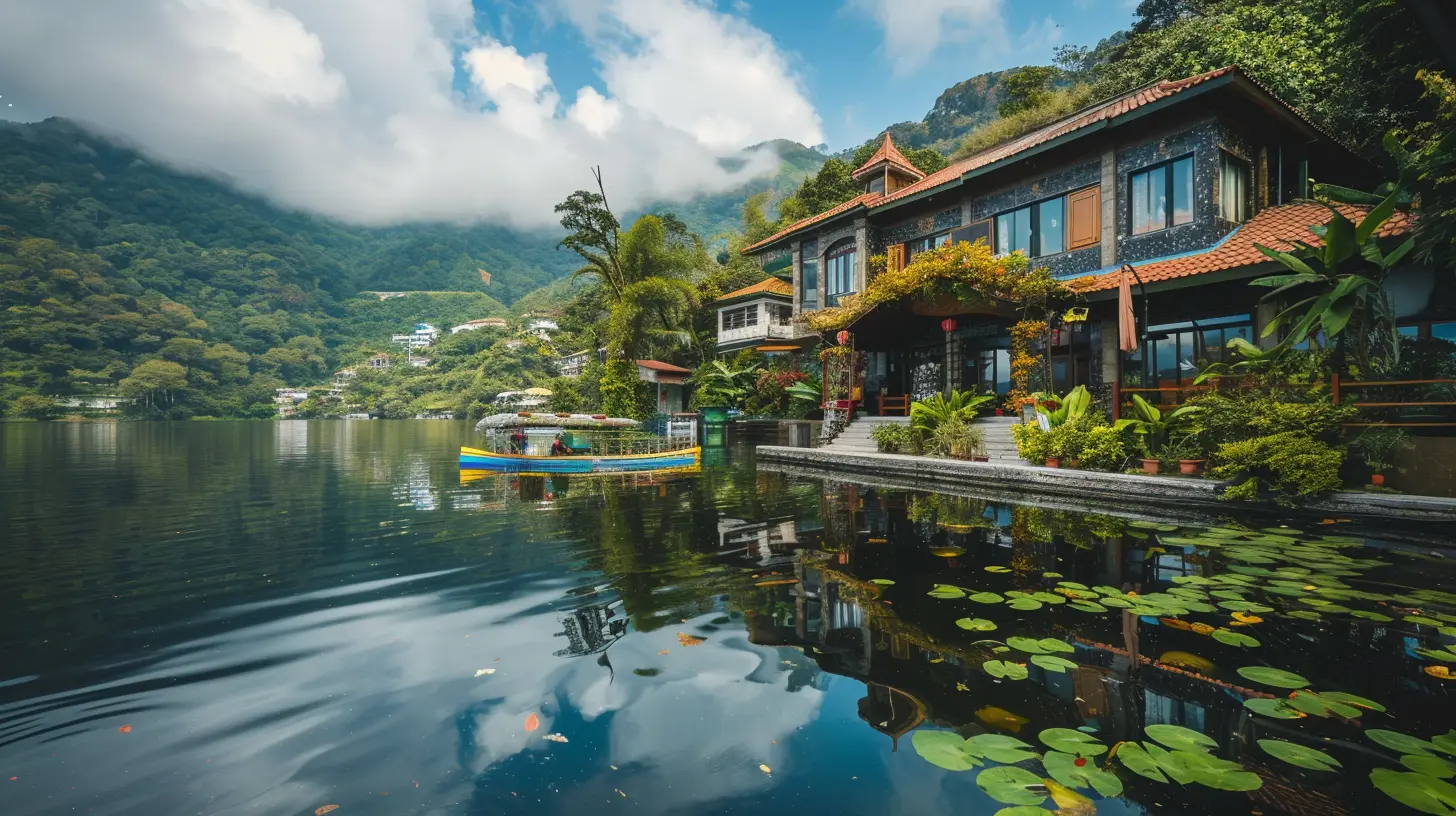How to Make the Most of Your Traveling Photography Skills”
16 September 2025
Traveling and photography go together like peanut butter and jelly. Whether you're wandering cobblestone streets in Europe, trekking through lush jungles, or just taking a weekend road trip, your camera is your best travel companion.
But let’s face it—snapping a quick pic on your phone and calling it a day won't cut it. You want those jaw-dropping, Instagram-worthy shots that make your friends wonder if you secretly work for National Geographic. So, how do you level up your travel photography skills? Let’s dive in! 
1. Pack the Right Gear
Traveling with a full-blown photography studio isn’t exactly ideal unless you're training to be the next Ansel Adams. So, what should you bring?Essential Camera Gear
- A good camera – A DSLR or mirrorless camera is the gold standard, but if that's not an option, smartphone cameras have come a long way.- Lenses – A versatile zoom lens (like 24-70mm) is a lifesaver, but if you have space, a prime lens for portraits and a wide-angle lens for landscapes can work wonders.
- Tripod – For those breathtaking long-exposure shots or low-light conditions. Plus, they’re great for group selfies!
- Extra batteries & memory cards – Because running out of storage in the middle of a stunning sunset is just cruel.
- Lens cleaning kit – Dust and fingerprints are your sworn enemies.
Bonus Gear for the Overachievers
- ND filters – Perfect for getting creamy waterfalls or dreamy motion-blur effects.- Drone – If you want to capture the world from a whole new perspective.
- Portable hard drive or cloud storage – Backup your photos before they vanish into the abyss.

2. Master the Art of Composition
A good photographer doesn’t just point and shoot. The secret sauce to breathtaking travel photos? Composition!Rule of Thirds: Your Best Friend
Imagine your frame divided into nine equal squares. Place your subject along the lines or intersections rather than dead center. This gives your shot a more dynamic and balanced feel.Leading Lines: Guide the Eyes
Roads, fences, rivers—use natural or man-made lines to draw attention to your subject. This trick adds depth and guides your viewer’s eyes right where you want them.Frame Within a Frame: The Sneaky Trick
Use doorways, windows, arches, or even trees to frame your subject. It adds depth while making your shot look effortlessly sophisticated.Symmetry & Patterns: Mesmerizing Beauty
A perfectly symmetrical shot can be oddly satisfying. Think of reflections in lakes or intricate tilework in historic palaces. Patterns, on the other hand, create repetition that’s visually appealing.
3. Chase the Best Lighting
Lighting is the secret MVP of photography. Get it right, and your photos will sing. Get it wrong, and well… let’s just say no filter will save you.Golden Hour: The Magic Hour
The hour after sunrise and the hour before sunset give you soft, warm, and flattering light. Photographing during this time? Chef’s kiss—perfection!Blue Hour: The Underrated Gem
The period right before sunrise or after sunset gives you a cool, cinematic vibe. Perfect for cityscapes or moody landscapes.Midday Sun: The Harsh Reality
Shooting at noon is like trying to reason with a toddler—it’s difficult. If you must, look for shade, play with shadows, or use a polarizing filter to cut glare.Night Photography: The Real Challenge
Low-light shots require a steady hand or tripod, a slower shutter speed, and a higher ISO setting (but not too high, or hello, grainy mess!).
4. Capture Candid Moments
Stiff, posed pictures? No, thanks. The best travel photos capture raw, unscripted moments.People in Action
Instead of static smiles, snap shots of locals doing what they do best—street vendors selling food, musicians performing, or kids playing in the streets. These images tell authentic stories.The In-Between Moments
Some of the best shots happen in between—I’m talking about laughter, accidental spills, or someone completely immersed in their surroundings.Blend In, Be Invisible
If you want natural shots, ditch the "Hey, look at the camera!" approach. Be patient, observe, and wait for the magic to happen naturally.5. Edit Like a Pro (Without Overdoing It)
Editing helps enhance your photos but should never scream, "I cranked the saturation to 200%!"Basic Edits to Master
- Brightness & Contrast – Make your images pop without washing them out.- White Balance – Adjust colors to reflect real-life lighting conditions.
- Cropping & Straightening – Fix wonky horizons. Trust me, no one likes a tilted Eiffel Tower.
- Sharpening – Crisp details? Yes. Over-sharpening? Big no.
The Power of Presets
Lightroom presets can be a lifesaver for quick edits. But don’t just slap one on and call it a day—tweak it to suit each image.6. Tell a Story Through Your Photos
A great travel album isn’t just a bunch of random shots; it’s a journey.Document the Experience
Capture beginning-to-end moments—boarding the plane, first impressions, sensory details (bustling markets, quiet sunsets, local cuisine).Details Matter
Close-ups of street signs, intricate tiles, local dishes—these small things add flair to your storytelling.Emotion is Key
If a picture makes you feel something, it’s a winner. Whether it’s the awe of standing before a historic monument or the joy of a child playing, emotion breathes life into your shots.7. Be Respectful and Ethical
Great travel photography is about capturing the world authentically and respectfully.Ask Before Photographing People
In some cultures, taking photos of people without permission is a no-go. Always ask (a smile and gesture work wonders if there's a language barrier!).Respect Sacred & Private Places
Not every spot allows photography, and some places are sacred. When in doubt, check first.Leave No Trace
Just because you’re snapping a photo of nature doesn’t mean you should trample over it. Protect the beauty you’re capturing!8. Get Creative and Experiment
There’s no single "right" way to do travel photography. The best shots often come from bending the rules (strategically, of course).Try New Angles
Shooting everything at eye level? Boring. Get low, climb high, tilt your camera—experiment with perspective.Play with Reflections
Puddles, glass windows, sunglasses—they make for epic reflection shots.Silhouettes are Cool Again
Backlight your subject at sunrise or sunset for a dramatic silhouette effect.9. Share Your Work and Get Feedback
Your travel photos deserve to be seen! Share them on social media, enter photography contests, or even start a blog. And don’t be shy—ask for feedback!Engaging with photography communities (Instagram, Reddit, or even local clubs) can help you grow and improve.
Final Thoughts
Travel photography isn’t about having the fanciest camera or perfect technique. It’s about capturing the essence of a place, a moment, and a feeling. So, grab your camera, embrace the adventure, and start clicking away!Who knows? Your next shot might just be the one that makes someone pack their bags and book a flight.
all images in this post were generated using AI tools
Category:
Travel TipsAuthor:

Pierre McKinney
Discussion
rate this article
1 comments
Uri McCoy
Enhance your travel photography by mastering composition, utilizing natural light, and capturing local culture to tell compelling stories.
September 16, 2025 at 3:41 PM

Pierre McKinney
Thank you! Mastering composition, leveraging natural light, and immersing in local culture are indeed crucial for enhancing travel photography and telling powerful stories.


